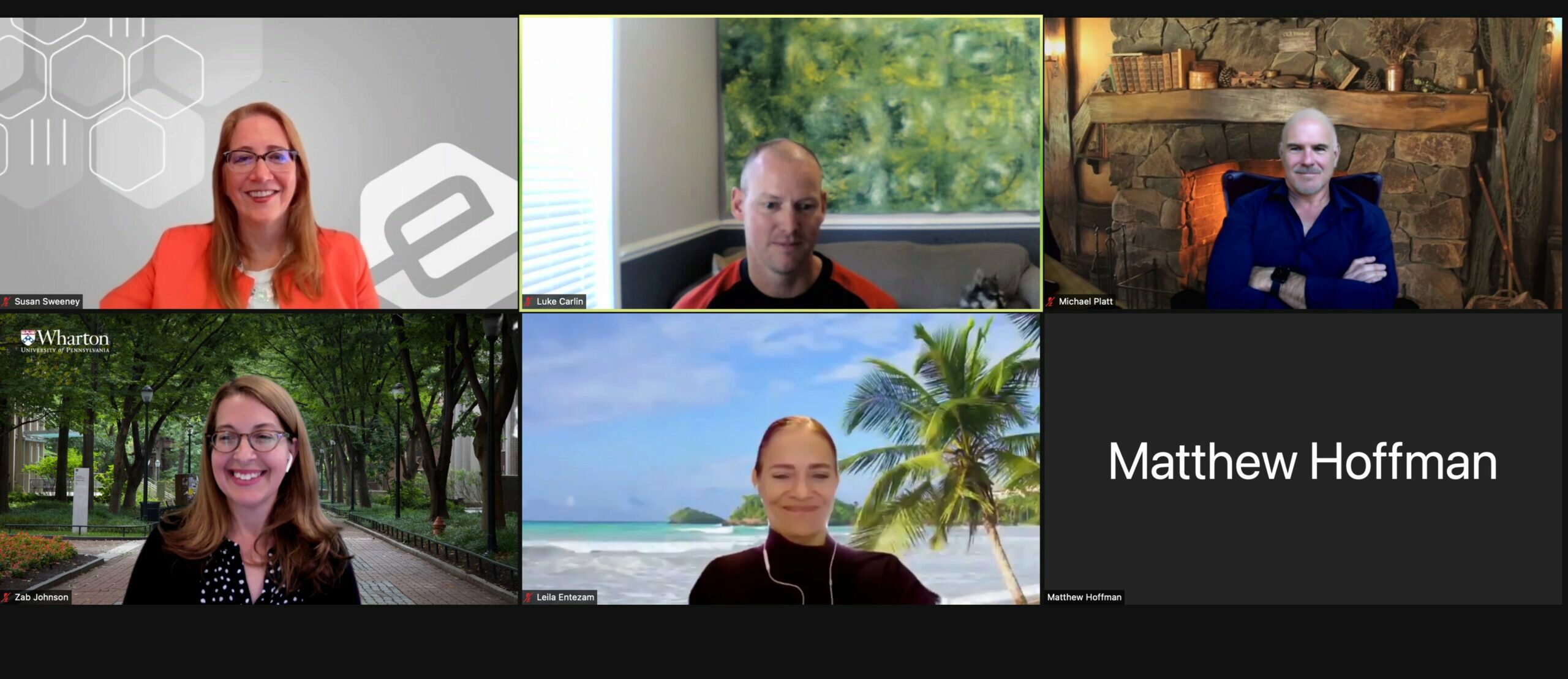Analytics at Wharton
News
How Neuroscience Can Help Build a Better Workplace

At Enpro Industries, the managers and employees take a few minutes before each staff meeting to meditate.
“That sounds kind of crazy,” admits Susan Sweeney, senior vice president and chief human resources officer at the industrial technology firm. “[But] the reason for that is because we all come to the meeting with lots of mental chatter, things going on in our lives that are distracting.”
Meditation helps clear the mind so that participants can turn their full attention to the task at hand – and to each other. It’s one of the ways the company is fostering psychological safety in the workplace.
“To connect and to build trust with others means that you have to be there and be present and listen.”
– Susan Sweeney, SVP and Chief Human Resources Officer at Enpro Industries
“To connect and to build trust with others means that you have to be there and be present and listen,” said Sweeney, who was among three panelists invited to join a recent Wharton Neuroscience Initiative (WiN) panel to discuss vulnerability, authenticity, and trust from diverse perspectives. (Watch the video below.)
The other guests were Matthew Hoffman, senior leader for the FBI Miami SWAT team, who shared how instructors encourage cohesion among agents who train together; and Luke Carlin, former Major League Baseball player and current catching coordinator coach for the Cleveland Guardians, who talked about the challenge of making a team out of athletes from disparate backgrounds.
“You’ve got this keychain full of keys, and you just need to find the right key for that player to unlock.”
– Luke Carlin, Catching Coordinator for the Cleveland Guardians
“You’ve got this keychain full of keys, and you just need to find the right key for that player to unlock,” Carlin said, describing his managerial style.
The panel, the second in an ongoing series, was hosted by WiN executive director Elizabeth “Zab” Johnson, Wharton marketing professor and neuroscientist Michael Platt, and behaviorist Leila Entezam. The goal of the series is to explore how managers can use teachings from neuroscience to create workspaces that offer psychological safety and feelings of connectedness. Research shows that such feelings can increase job satisfaction and help employees perform at their optimum.
Neuroscience maps the intricacies of human interactions, which become more complex at work. As managers ascend in rank, they risk losing valuable social connections with subordinates. But Platt encouraged them to be mindful and intentional about those connections through constant engagement: listen, look at facial expressions, hear vocal cues, understand meaning, and have empathy.
“Hierarchy is deeply baked into human nature,” he said. “But for human beings, just like our primate cousins, our successes are due to both cooperation and competition, so they’re in delicate balance.”
In addition to meditation before meetings, Enpro managers host a weekly open forum where employees can talk about anything on their minds, including taboo topics. These “courageous conversations” have helped build bridges among workers, Sweeney said.
“We’ve hit race, ethnicity, religion, politics – all the things you’re not supposed to talk about at work,” she said. “We try to create a safe environment to do that.”
At the FBI Tactical Section in Quantico, where Hoffman was an instructor, agents come from 56 different field offices to train with each other. Hoffman said the instructors keep a watchful eye on how the agents interact during both active and down times. If agents stay physically close to each other and relaxed during down times, that’s a sign of trust.
“What we really worry about is if someone is separate from the group. Was this a group dynamic thing, or did that person feel like they were violating the trust of the group?”
– Matthew Hoffman, Senior Leader for the FBI Miami SWAT team
“What we really worry about is if someone is separate from the group,” Hoffman said. “Was this a group dynamic thing, or did that person feel like they were violating the trust of the group?”
Behavior observations are important because agents who have cohesion in training have better outcomes during real-word incidents, he said. Hoffman said FBI instructors read neuroscience books and rely on research from those books to help unlock “the culture code.”
In baseball, the challenge includes building a team with players who speak different languages and come from different cultural backgrounds. Carlin said coaching is more than just helping a player develop technical skills; their emotional needs deserve just as much attention and care.
“It’s a mindset that we try to take as coaches of let’s connect before we coach,” he said. “That is everything from a hand on the shoulder to somebody locked into their technique.”
All three professionals told the panel hosts that learning to manage “soft skills” has become increasingly important during these turbulent times. They encouraged others to work on building vulnerability, authenticity, and trust in their own organizations.
“This time that we’re living through right now makes it even more important,” Sweeney said. “Because you’re not physically with people, so you’ve got to be intentional about trying to connect.”
— Angie Basiouny

Wharton Neuroscience Initiative’s bold and comprehensive vision is to improve business, drive discoveries and new applications, and enhance the education of future leaders through the synthesis of neuroscience, psychology, business, technology, and analytics. Rooted in Wharton and spanning the entire University, the city of Philadelphia, and the industry at large, WiN engages with students, faculty, companies, government agencies, and nonprofit organizations to build better business through brain science.


